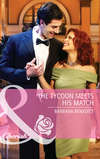Читать книгу: «A Rendezvous To Remember», страница 2
He’s smart. He never hits me upstairs, where someone might see. No, he waits until I’m doing the laundry over the cellar fire, when I’m tired from the work and can’t fight back, as well. Then he comes up to me, a snake in farmer’s clothes, and sooner or later his hand reaches out and inflicts yet more pain.
If not for Belle, the Belgian Shepherd dog who showed up on our stoop last year, I’d have not one confidante. Henri threatened to get rid of her at first, but since she’s grown to ninety pounds he leaves her be. I make sure their paths don’t cross often. He’s incapable of compassion for any living creature.
I couldn’t go out to the market or see my family in Brussels for three weeks after the last beating. Can’t risk hurting them. If they see me they’ll know, even if they don’t see the bruises under my clothes. They’ll see the despair in my eyes.
I thought I’d done well for my family by marrying Henri. His kind words and thoughtful manner before our marriage seduced me, as did the food he’d provide for my family.
I never imagined what horrors awaited me.
Oh, Maman and Papa. Elodie! I miss them so much. They are also active in the Resistance and I fear for their capture. Yet they wouldn’t be my family if they didn’t do what they believed in.
And I’ve been able to keep them fed. Potatoes, beets, even some meat when Henri slaughters one of our remaining cattle. We have to stretch the meat, using a little at a time, but it keeps our bellies full enough. The hunger pains don’t hurt or distract as they did before I married this bastard.
Although, there are days I’m too nauseated to eat from the ferocity of his attacks.
April 16, 1942
The one good thing that remains is my Resistance work. He has no idea about it and never will. At first I didn’t tell him to protect him. Now I don’t tell him for fear of being killed, and all my work being for naught.
The group needs me. They need my information, my language abilities. I don’t speak fluent German but I understand enough to know when the bastards are planning another domestic raid. My English has improved, too, since I’ve worked with the RAF intelligence planted here.
Originally I’d thought that when I married Henri, he might support me in providing a safe landing spot for the spies England sends us.
I will never tell him about my Resistance work. It’s what sustains me, even more than protecting my family. When he’s smashing my jaw or I crack another tooth on a door frame from his strike, I just think of what our young boys are going through. We will persevere.
Belgium will be free again, thanks to our strength of will and our Allied angels.
Like manna from heaven they float down, infiltrate our society and use the information they glean to help the analysts back in London.
The war will end quickly.
Our Allies are strong.
If only I felt as strong. This morning, as he does every morning, Henri wanted me upon wakening. I’d prefer to keep our relations in the dark. It’s easier if I don’t have to see the devil when I have to suffer the weight of him.
And the brutality of his lovemaking. It’s not lovemaking; it’s forced violence. He rapes me every time. Except I don’t resist. What good would it do? He’d just knock me out with a blow and have at it anyhow. At least this way I can get up and do my best to wash away any chance of his seed implanting.
May 24, 1942
He’s angry. It’s almost a year and no whisper of a baby yet. At thirty-five he doesn’t want to wait. While I, at almost 21, pray he’ll die in his sleep, God forgive me.
I pray I can have babies with real love one day.
Even as I write this, I can’t say I believe love exists anymore. Not when my Jewish friends are being murdered, not when I’m beaten senseless for not making my pommes de terre tender enough.
I made a horrible mistake last week. In a moment of weakness, when Henri again mentioned his anger at no child from me, I suggested we could adopt. I have contacts. I didn’t tell him this, of course. With luck, we could adopt a Jewish baby. One whose parents have been sent away or will be soon. Several families in our town have adopted these babies, though it’s done quietly, without fanfare.
We could save a life and might even have a chance at saving our marriage.
At changing his heart.
He answered by shoving my head into the tub of water I’d used to wash the dishes.
“Do you desire a slow miserable death? That’s what the Gestapo will give us both if they hear your filthy talk. The only babies in this house will be mine.”
He kept ranting as he pulled on my hair, allowing me to gasp for air, then plunging my face back into the dirty water.
Sometimes I think of a different day, when I was young and looked forward to life and love. Before the Germans came back to our beautiful country and stamped out any hope of freedom.
Chapter 3
Esmée’s Journal
November 23, 1942
Winter is upon us. But my heart is far colder than any wind from the North Sea.
Yesterday I saw the ultimate betrayal. More painful than any of his slaps or punches or kicks.
I watched that bastard, my husband, give food—first-quality harvest and three pigs—to our enemy. He smiled and laughed, and even smoked a cigarette with them. He doesn’t think I saw them. He thinks I was busy in the cellar, boiling our linens. I fumed inside as he sold his soul for our country’s blood.
Thank you, God, that I never told him about my involvement in the Resistance.
Now I’ll have to be more careful than ever when I go out, which can only be when he’s either passed out from beer or when he goes into Brussels, which is rarer. I used to think he went into Brussels just to sell his goods, but now I wonder if he’s been making friends with the Germans all along. Maybe he’s charming one of their vile wives?
No matter to me. I am determined to get my family, my real family, through the war. I pray his seed never takes root inside me. God forgive me, I don’t want a child with this devil.
Melinda closed Grammy’s book and leaned her head against the back of the worn leather reading chair. She needed a break. It was as if the venom in Grammy’s words could burn Melinda’s skin more than sixty years after they were written.
She shoved her feet into her scuffed slippers and went to the kitchen to make a large pot of tea. She looked at the antique clock on the wall; she’d wound it last night.
She and Nicholas had bought this clock together, during a visit to Niagara-on-the-Lake. The intricate carving on the simple wooden box was yet another reminder of her own love gone bad.
Here it was, eight-thirty on a Saturday evening.
Dinner wasn’t even an option. Her stomach was as tense as her nerves. Tea was the only thing that ever helped her through these times, and there’d been many cups in the last few years.
The backyard light flicked on, evident through the toile curtains that hung halfway down the picture window, which ran the length of the kitchen.
Despite her nervousness, Melinda walked over to the door. Probably just some wayward raccoon or neighborhood cat, but it never hurt to check. She’d been living in the heart of D.C. for too long to ignore any hint of danger.
The baseball bat she kept at her bedside was upstairs. Her fingers itched for it. As she stood in the middle of the kitchen floor, the teapot started to whistle.
The figure of a large man loomed in the window of the kitchen door. Melinda screamed.
And then her brain registered what her eyes saw.
“Nicholas!” His name was a strange mix of strangled cry and whispered prayer. Before her feet could respond to her brain’s order to move, Nicholas had unlocked the door and it swung open.
He looked as tall and imposing as ever, albeit a bit slimmer than she remembered. He was bundled against the cold in a charcoal overcoat.
He’d always been the most attractive man she’d known, and still was. Her gaze went to his face, and met his blue eyes that, right now, blazed fire at her.
He hadn’t expected her any more than she had him.
“What are you—”
“Why are you screaming at me?”
They both spoke at once. Their eye contact remained steady while the words hung in the frosty air between them.
“It’s freezing in here.” She broke the contact and nodded at the door he’d left wide-open behind him.
“Don’t want that, do we?” He slammed the door shut with his foot, never moving his eyes from her face.
But the motion of his foot distracted her, and she glanced down.
And saw the cane.
She tried to look away before he saw her discovery but wasn’t quick enough.
His eyes narrowed, his mouth curled. He’d never accepted pity from anyone.
“You’re hurt?” Her words came out in a squeak.
“Nothing major.” He tapped the cane on the tile. “This helps me negotiate uneven ground—or with an intruder in my home.”
“You don’t have to be so snippy. It’s still legally half my home—for the next two weeks.”
She walked to the teakettle and took it from the hot stove. She hoped her actions conveyed a tranquility she didn’t feel. First Grammy’s venomous words and now Nicholas’s censorious presence.
“‘Snippy.’ Yeah, that’s how I’m feeling. Snippy.”
He strode across the room to the coat closet, the cane tapping in rhythm with his steps. The rustle of hangers and winter coats was followed by a muffled curse, just loud enough to reach her ears.
She stopped plunging her teabag into the cup.
It wasn’t like Nicholas to swear. At least it hadn’t been, not while they were married. Or rather, together.
Melinda bit her lip. How could she know what he was like now? They hadn’t communicated in more than six months. Not one e-mail, not one phone call.
There’d been times when Melinda itched to take advantage of her staff position in Senator Hodge’s office and use a Pentagon resource to trace Nicholas’s location.
But she hadn’t.
If Nicholas wanted her, he could find her.
He’d been in Afghanistan, last she’d heard. He could’ve died and she wouldn’t have known. Not until the casualty assistance officer knocked on her door. If Nicholas had even bothered to change her emergency-contact information after she’d left Buffalo.
“What are you doing here?”
“Aaagh!” Melinda dropped the bag she’d steeped too long in the hot water and whirled to face Nicholas.
Don’t look at his eyes. Don’t remember why you loved him.
“Shouldn’t I be asking you that? In case you haven’t checked, I’ve had no information from you in the past six months—except the divorce papers I was served with four months ago!”
She stared at him, as surprised by her outburst as he obviously was.
After a long moment, he glanced away. The anger that fueled her accusation ebbed but left her knees shaky. Melinda sank into the 1940s-style red-and-white striped chair nearest to her and looked down at the tiled floor.
Anywhere but at his eyes.
She heard the scrape of a chair, then a vibration as the table shook with Nicholas’s weight against it.
“You never responded to the papers, except to sign them.” His voice was flat. Melinda’s tension flared into resentment at his apparent nonchalance.
“What was I supposed to do, Nicholas? The last thing I knew, we were separating to see if living apart was what we actually wanted. I didn’t realize you’d already made up your mind.”
She hated sounding so pathetic but there it was. The truth as she saw it.
“The last thing I knew, you packed up and left for D.C.—a week before I had to ship out.” His quiet tone tugged at her and she risked another look at him.
She gazed openly at his strong features and noted that his skin appeared paler, more drawn. The lines that crinkled when he laughed made him look tired, even sad. But his eyes bore the intensity she’d always seen in him and for a second Melinda didn’t know how she’d lived without her husband these past months.
“What else could I do? I was reacting to the news that you were leaving again the best way I knew how.” Her words ended on a whisper, and she looked down at her hands.
Her bare hands. She wore her wedding ring on a thick gold chain around her neck. It had been Grammy’s chain from before World War II. Had he noticed?
His sigh reverberated around her. “Doesn’t matter now, Melinda. We’ve made our choices.” His fingers drummed on the table and she saw that he, too, had removed his wedding band. She didn’t think it was for safety purposes since he wasn’t in uniform.
“How long will you be here?” His question caught her off guard. She had Senator Hodge’s blessing to take at least two weeks.
“I don’t know.” Maybe Nicholas needed some time alone here, she thought, before they put the house on the market. Their home.
“Do you need me to be out of here?” she asked.
“This is your home, too, Melinda. All I want to know is whether I’m sleeping on the couch for tonight or if I should go ahead and unpack in the guest room.”
“Grandpa Jack gave me this journal of Grammy’s to read, and his diary. I’d planned to stay with him—do whatever he might need me to do before winter sets in. But he insisted I stay here.”
She shrugged, trying to appear casual. “I think it would’ve upset him too much if I fought him on this.”
Nicholas’s expression remained impassive. “Fine. Take your time,” he said. “I’m home for good, so after about a week or so I’ll be back at work full-time.”
His stamina was close to his pre-injury level. But he hadn’t had to test it in a real environment for so long.
His leg ached from the flight and the drive home. But he was secure in the knowledge that no one—not Melinda or anyone else—could tell just how much his active-duty stint in Afghanistan had cost him.
Esmée’s Journal
December 19, 1942
My hands shake as I write. This has to be the coldest winter on record. Or do I feel the damp penetrating every inch of my body because fear has left me hollow?
I managed to bring Maman and Papa enough turnips and potatoes to get them through the next week or so. I hid them in the folds of my old wool coat, which grows thinner each day.
I caught Henri snooping about our room and pawing through my few possessions. Having to act as if that didn’t bother me wasn’t difficult, as this journal, this account of my hell, is the only thing of value to me in the house.
I keep it hidden behind the old tapestry that hangs in our sitting area. The entire wall appears to be plain old brick. Several of them are loose, but I’ve dug out a hole behind one brick. I then placed another brick in the hole to the right, so that anyone who pulls out the front brick and reaches in will find an empty space.
I live in fear that he’ll learn about my work with the Resistance. Yet death would be preferable to the humiliation he brings with his ugliness and dark heart. There are times I want to take my rolling pin and crush his skull with it. But where would I go? To prison? Then my family would starve.
I will hang on as long as I can. As long as there’s food for Maman, Papa and Elodie.
The stove fights me each day. Henri has a stash of wood he monitors closely. If I use too much he smacks me. If I allow the fire to burn out, he uses his belt.
I live for the times he travels to Brussels, or wherever he goes. The house isn’t peaceful unless he’s out of it.
I told Philippe in our group that I live on a farm, and if I know that Henri will be gone long enough, our Allies could use one of our fields as a safe place for RAF insertions.
December 21, 1942
The phone rang the other day and I answered, hoping for news from Maman and Papa. Henri was out in the field, earlier than usual. I picked up the receiver and before I could say “Hallo,” I heard a string of German before the caller hung up.
For some reason—pure luck?—we’re one of the few homes that still has our phone line connected.
So now they call Henri at home. What kind of creature is he that he supports the enemy so blatantly during our worst years in Belgium? While my male classmates and cousins fight God-knows-where for our release and freedom from these bastards.
I long for the day the Germans will go home. If it’s up to me, they’ll go home in shame, having lost to our Allies.
And Henri will go with them. If I live that long, I’ll divorce him as soon as the War is over. I don’t care if it ruins my life. He already has. Divorce will ruin my reputation but will save my soul. What’s left of it.
Chapter 4
Esmée’s Journal
December 25, 1942
This is a Christmas I will always remember.
I now have a man to nurse back to health and a husband to grieve. I don’t grieve for Henri, but I grieve for the marriage that never was. For the hope I had at the beginning. For the hope of what I once thought was a mutual friendship that might blossom into a true marriage.
Let me start again.
I’ve learned during the past weeks that Henri has helped the Germans rout out the Jewish children from our village. He even knew where they were staying if they’d been sent to relatives.
As he beat me for what would be the last time, he snarled, “I’ll bet you think they’re the same as us, don’t you? Don’t you?” I said nothing. I couldn’t; my lip was swollen and bleeding. But I laughed inside as I knew that once I told the Group what Henri was up to, they’d take care of him. And I had to tell them. It wasn’t about my conscience or my soul. It was about saving innocent lives. The Nazis occupy our country but they can’t take my heart. And I’d die before my husband (in name only) could give them one more piece of information.
I went to Midnight Mass on my own on Christmas Eve. I figured Henri had some urgent evil business, so I went to pray it wouldn’t work out well.
The night was cold and crisp. For once we had no rain, just a wide clear sky above, with the stars floating close enough to touch. I relished my walk home in the dark. This isn’t a Christmas for parties and celebration; it’s one for prayer and hope that our hell will end soon.
I came home from Mass to an empty house. But Henri wasn’t passed out drunk on the sofa, as usual, nor was he waiting to pummel me. A frigid breeze blew through the house and I heard my dog, Belle, barking out back. Henri was always careful to make sure she was outside when he beat me—Belle would have killed him if he’d ever left her in the same room when he hurt me.
Her barks alarmed me with their persistence. I ran through the house to the kitchen door, which stood wide open. I could see a lantern about halfway across the field, which was lit up by the full, full moon. I made out Henri’s silhouette and Belle’s, across from him. But who was the figure next to Belle?
I grabbed one of Henri’s hunting rifles. I may never know why I did; I’d never allowed Henri to find out that I knew how to fire a weapon. He would’ve locked up the rifles, and for some perverse reason I’ve always felt safe knowing they were there. Just in case.
I ran into the field, the frozen mud crunching so loudly beneath my feet that the sound drowned out whatever Henri was saying to Belle, and to the figure. As I neared, I realized with a jolt that Henri wasn’t even aware of my approach. Belle’s barks had helped to cover my steps, but that’s not why he was distracted.
Henri was enraged. But for once, not at me.
“You stupid shit of the earth. Do you think I don’t know who you are, what you represent?” Henri had his rifle up and cocked, pointed at the figure.
It was a man. He wore plain dark clothes and there was a large cloth draped on the ground next to him.
A parachute.
The Group had said they’d use my pasture, but they’d give me advance notice—if they could. Obviously they hadn’t.
“Please, friend, let me explain.” The man spoke perfect Belgian French. Henri started to yell at him in German.
“I’m not your friend, nor am I a friend of any supporter of Churchill’s.”
“I don’t understand,” the man answered, again in fluent French, but I had the sense that he understood Henri perfectly. At this point he’d spotted me, although I noticed he gave away nothing in his expression. He was sitting, both legs in front of him. He held his right ankle in his hands.
“Understand this. You’ll be sorry you didn’t break your neck in the fall.” Henri raised his barrel and from his stance I knew he was a stroke from killing the man.
“Henri, don’t!”
Henri barely started. He didn’t even look at me.
“Shut up, Esmée. Take Belle back in the house before I shoot her, too. You know not to disobey me.”
Disobey him?
I hoisted my rifle and shot Henri in the head.
His body dropped in slow motion, and I wish I could tell you I felt guilt or recrimination or compassion at his fate. But all I felt is what I feel now. If I must suffer in hell for Henri’s blood, better that than letting him spill the blood of more innocent Jewish families. God only knows how many have met their untimely fate at his hands, through his help.
“Nice shot.”
Again, the stranger spoke in fluent French and I responded the same way.
“I just saved your ass and all you say is ‘nice shot’?”
“Merry Christmas?” he offered, and I laughed.
I actually laughed. I, who had just murdered my husband in cold blood, after Christmas Mass. War does strange things to a person, and sadly I’m no exception.
After our laughter stopped, we were left with the still, cold night and the prospect of figuring out if indeed this man belonged here. And what was I to do with him?
I studied him more closely. He looked like any local Belgian. A full beard and spectacles covered most of his face. I couldn’t see much more in the dark, no matter how bright the moon. But he had a quiet, intense presence about him.
“You are Muriel.”
He spoke my Resistance code name. He’d heard Henri call me “Esmée.” Still, he could be an undercover German. A double agent. But at that moment I decided to trust him.
“Yes, I am.”
“I am from across the way.”
This time he spoke in English.
He meant, of course, the English Channel. He was another one of the many Allied operatives who were landing in Belgium to help the Resistance.
I put down my rifle. It ran through my mind that this Ally probably thought I was crazy. That I could stand there having a calm chat with him in my cow pasture on Christmas morning, as my husband’s body lay next to us.
“Did you love him?” His question shocked me. I responded before I could think.
“I hated him.”
“So saving my ass wasn’t too much of a sacrifice, then?”
“No.”
I wish I’d been able to explain to him that I wasn’t a monster. That years of living with this horrible man in a horrible time had left me with no hope for my future. That my only reason for getting up each morning has been to save more people from the Germans, and to save any future victims of Henri’s efforts to aid the enemy.
But all I said was “no.”
Melinda heaved the journal off her lap and placed it on the mahogany end table she and Nicholas had refinished last year.
The conversation they’d had then played in her mind as if it had just happened.
She’d landed a position in Senator Hodge’s local office but she’d been offered one in Washington, D.C. She’d wanted to take it. Planned to take it.
Nicholas had rejected her suggestion that they move. His accounting practice was flourishing and, even though he’d have no problem landing a great job in D.C., he didn’t want to leave western New York.
“It’s all we’ve ever known. We’ve been so happy here,” he’d argued.
“Exactly. It’s all we’ve ever known. But it was pretty damned desolate while you were in Afghanistan.”
She’d loathed the entire year he’d been gone, and was grateful he’d returned in one piece.
But the year of separation and isolation had stirred a restlessness in Melinda that she needed to explore. She was like her father, James, who’d worked as a civil servant, first for the municipal government in Buffalo and then in Arizona. She was interested in federal politics. Grammy, like Nick, had thought maybe it was time they had a baby, but the baby never came.
They’d been unable to conceive.
“Honey, we’re in an adjustment period,” he’d said that fall day. “I’ve only been back six months, and we were apart an entire year.” He’d placed his hands on her shoulders, but Melinda couldn’t accept any comfort from him. Not then.
“You’ve only been home for six months but you’re already talking about leaving again.” Her words were spoken quietly but their weight was deadly.
Nicholas dropped his hands from her shoulders and took a step backward.
“You’ve always supported my Reserve training before. Surely you understood it was training for war.”
“Yes, but you seem so eager to go, Nick. It’s as though you have some sort of death wish. I mean, to agree, to volunteer again—”
“Cut me some slack here, Melinda. I’ve been with the same team for the past ten years. We’re like family. I can’t let them down now.”
“What about me? Us?”
“There’s always us. That never changes.”
“You say you want a baby, but how can we work on it when you’re halfway around the world fighting in a war?”
“The same way we’ll work on it while you’re in D.C. and I’m here.” His resentment at her more and more frequent business trips was reflected in his tone.
They’d thrown accusations at each other that day as if words didn’t hurt, wouldn’t stay ingrained on their hearts for a long while to come, if not forever.
On Sunday morning, Nicholas rose with the sun. Mornings were always the toughest time. He had to stretch, put on his prosthesis and remember how to walk with his new leg. Sometimes the phantom pain took his breath away. Not today.
Today he was under the same roof as Melinda. His heartache far outweighed any pain he’d suffered as a result of the IED, improvised explosive device, and the subsequent loss of his leg.
The pain he felt at the loss of his squad mate, Tommy, who hadn’t survived the IED, could still leave him breathless if he dwelled on it. But it didn’t compare to the pain he felt at the thought of losing Melinda.
Waking up in the trauma unit and finding out that Tommy had died, leaving a widow and three kids, was a gut-wrenching blow. He wasn’t sure if he’d ever get over it. He’d certainly never forget Tommy.
But if he lost Melinda, their marriage, he’d lose his most important reason to live.
Melinda was his life, his soul mate. But they’d gone wrong somewhere in their fifteen-year marriage. He intended to right whatever he’d screwed up.
He went downstairs and started a pot of coffee. He was happy to see that Melinda had replaced the Starbucks coffee he’d left in the cupboard seven months ago. While the coffee brewed, he walked to the front door, intent on the morning paper. After he opened the front door and was greeted with an icy blast he realized the paper service had been terminated.
Of course. He’d made the call himself two days before his departure.
A week after Melinda had left.
“You’re up early.” Her voice seemed to touch the tender place inside that he’d thought was dead.
“Habit.” He turned away from her, and went back into the kitchen. But not before he caught a whiff of her morning scent. Shampoo, hair products, perfume. For a split second, all their bitter words dissolved and all he wanted was to pull her into his arms.
Instead, he settled for looking at her.
Big mistake. The IED had taken his leg but, thank God, nothing else. Right now he was acutely aware of his physiological response to her.
Big blue eyes stared at him from behind fringed lashes that he knew to be pale blond when not coated with mascara, as they were now. She’d cut her hair, and as much as he missed the straight, silky length that fell to her shoulders, the new sleek chin-length style was stunning on her.
When she raised an eyebrow, Nicholas turned away. He had to stay cool if he was going to pull this one off.
“Learn anything interesting from Grammy’s journal?” He poured them each a cup of coffee. He was generous with her half-and-half, just the way she liked it.
Melinda’s expression looked as if she’d refuse his attempt at a truce. After a few tense moments, the lines in her face relaxed.
He watched her slim hands wrap around the ceramic mug. She lifted it to her lips and he had to avert his gaze or risk another surge of hormones.
“I’ve—” she narrowed her eyes “—we’ve always known that Grammy was a strong person. But I’m reading about someone I don’t know at all.”
She related what she’d read so far, and while Nick was saddened that Grammy had suffered at the hands of an abusive husband, he wasn’t surprised to learn how resourceful she’d been.
“This guy who landed in her pasture—he was a Brit, I assume? Grandpa Jack?”
Nick took a long sip of coffee and watched her across the kitchen table. The sun was rising and sent slanted beams of light across Melinda’s face.
“I haven’t read that far yet. They always said they met during the war, didn’t they?”
“Yes, but neither one of them ever told me the full story. They were experts at enjoying today, the here and now.”
Nicholas longed to share the last conversation he’d had with Grammy. But not now. Not until Melinda was ready to hear him out. After he’d told her about his leg.
Melinda sighed.
“It’s weird. I thought I was coming home to take care of Grandpa Jack. You know how lifetime couples often pass on very close to each other? I’ve been expecting to hear Grandpa’s gone, too. Instead, I come home to find him in his garden, working away, and he gives me these journals to read. Tells me they’re very important.”
Бесплатный фрагмент закончился.
Начислим
+10
Покупайте книги и получайте бонусы в Литрес, Читай-городе и Буквоеде.
Участвовать в бонусной программе



























